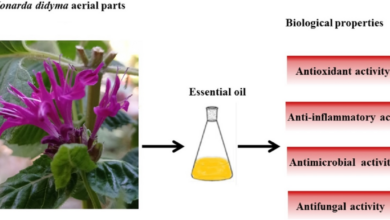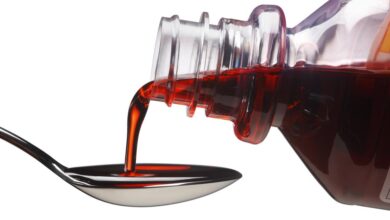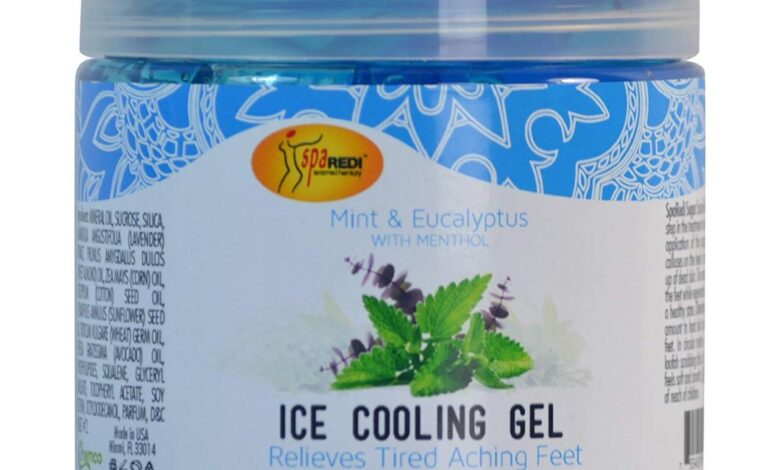
Benefits of Peppermint for Headache Relief
Benefits of peppermint for headache? Who knew this common herb could pack such a potent punch against throbbing temples and nagging pain? For centuries, peppermint has been a natural remedy for headaches, its cool, refreshing scent often associated with relief. But beyond the pleasant aroma, there’s a fascinating science behind peppermint’s headache-busting abilities. Let’s delve into the world of peppermint and discover how this versatile plant can ease your next headache.
From its chemical composition to its historical uses and modern scientific backing, we’ll explore the various ways peppermint can provide relief. We’ll also look at different application methods, potential side effects, and how peppermint compares to other headache remedies. Get ready to discover a natural, potentially effective solution to your headache woes!
Peppermint Oil Composition and Properties
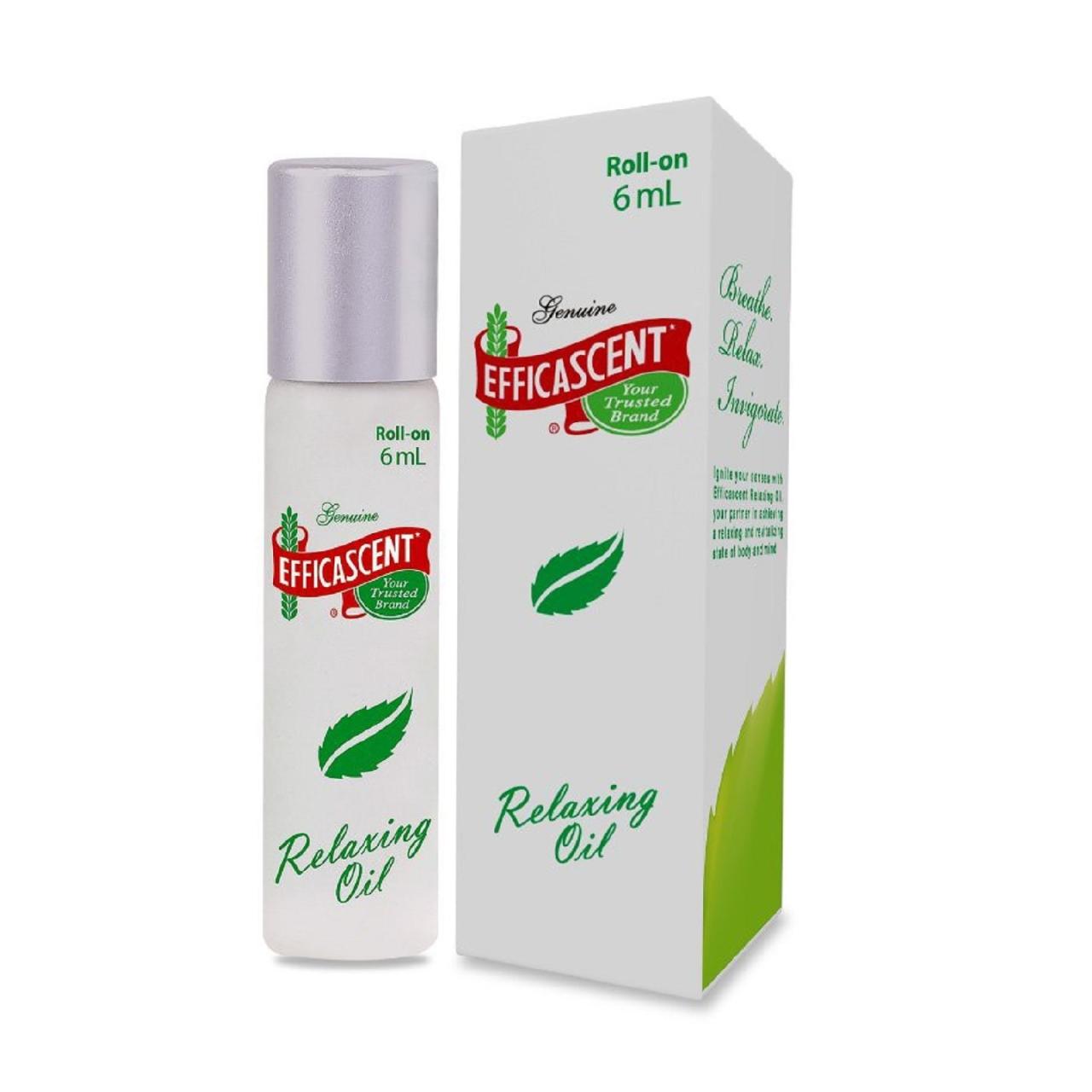
Source: carlopacific.com
Peppermint oil, renowned for its refreshing aroma and various therapeutic applications, including headache relief, boasts a complex chemical composition. Understanding this composition, particularly the key components and their mechanisms of action, is crucial to appreciating its effectiveness in alleviating headache pain. The primary active compounds responsible for its analgesic properties are intricately linked to its chemical structure.The primary active component responsible for peppermint oil’s therapeutic effects is menthol, a monoterpenoid alcohol.
Other significant components include menthone, menthyl acetate, and cineole, each contributing to the overall profile and efficacy. The exact ratio of these compounds can vary depending on factors such as the peppermint cultivar, growing conditions, and extraction methods. These variations can subtly influence the overall therapeutic effect.
Menthol’s Mechanism of Action on Pain Receptors
Menthol, the most abundant and arguably most important component in peppermint oil for headache relief, exerts its analgesic effects primarily through its interaction with TRPM8 receptors. These receptors, also known as cold-sensitive receptors, are located on sensory nerve endings in the skin and other tissues. Upon binding to TRPM8 receptors, menthol activates these receptors, leading to a cascade of events that ultimately result in a sensation of coolness and a reduction in pain signaling.
This cooling effect is not merely a superficial sensation; it actively interferes with the transmission of pain signals to the brain. The activation of TRPM8 receptors by menthol appears to inhibit the release of inflammatory mediators, thereby further contributing to pain relief. This multifaceted mechanism contributes to its effectiveness in various pain conditions, including headaches.
Variability in Peppermint Oil Derived from Different Sources
Peppermint oil isn’t a monolithic substance. Its composition and consequently, its efficacy, can vary depending on the source. The most commonly used species is
- Mentha × piperita*, a hybrid of water mint (*Mentha aquatica*) and spearmint (*Mentha spicata*). However, even within this species, variations in growing conditions – such as soil type, climate, and altitude – can influence the concentration of different components. For instance, peppermint oil cultivated in higher altitudes might have a higher concentration of menthol compared to that grown in lower altitudes.
Furthermore, different extraction methods, such as steam distillation or cold pressing, can also affect the final composition of the oil, influencing the balance of menthol and other compounds. These variations underscore the importance of considering the source and quality of peppermint oil when assessing its potential benefits for headache relief. While
- Mentha × piperita* is the most common source, oils from other
- Mentha* species may have different chemical profiles and thus varying levels of effectiveness. Choosing a high-quality, pure peppermint oil from a reputable source is crucial for maximizing its therapeutic benefits.
Traditional Uses of Peppermint for Headache Relief
Peppermint’s soothing properties have been recognized and utilized for headache relief across various cultures and throughout history. Its widespread application stems from readily available resources and observed effectiveness, leading to diverse methods of preparation and administration. Examining these traditional uses provides valuable insight into the plant’s enduring role in headache remedies.
The use of peppermint for headache relief is deeply rooted in traditional medicine practices across the globe. For centuries, different cultures have independently discovered and employed this herb for its analgesic and cooling effects. The methods varied widely, depending on the available resources and cultural practices. From simple topical applications to more complex concoctions, peppermint has consistently held a place in home remedies for headaches.
Examples of Peppermint’s Historical Use in Headache Relief
The following table details examples of historical and cultural uses of peppermint for headache treatment across different regions. While precise documentation can be limited for some historical practices, these examples illustrate the long-standing relationship between peppermint and headache relief.
| Region | Method of Use | Description | Source/Anecdote |
|---|---|---|---|
| Ancient Greece | Topical application of crushed leaves | Hippocrates, considered the “Father of Medicine,” documented the use of peppermint for various ailments, including headaches, often applying crushed leaves directly to the temples. | Writings attributed to Hippocrates and other historical texts from the period. |
| Traditional Chinese Medicine | Infusions and topical ointments | Peppermint, known as 薄荷 (bó he) in Chinese, has been incorporated into herbal remedies for headache relief for centuries. These remedies often involved infusions for internal consumption or topical ointments for localized application. | Ancient Chinese medical texts and contemporary practices. |
| Native American Cultures | Infused teas and poultices | Various Native American tribes utilized peppermint in different forms for headache relief. Methods included brewing teas from the leaves or creating poultices for direct application to the forehead. Specific practices varied greatly depending on the tribe and region. | Ethnobotanical studies and oral histories from various Native American communities. |
| European Folk Medicine | Inhalation of steam infused with peppermint | Inhaling steam from water infused with peppermint leaves was a common practice to relieve headaches, leveraging the plant’s aromatic properties for their potential therapeutic effect. | Various historical accounts and documented folk medicine practices across Europe. |
Scientific Evidence Supporting Peppermint’s Efficacy: Benefits Of Peppermint For Headache
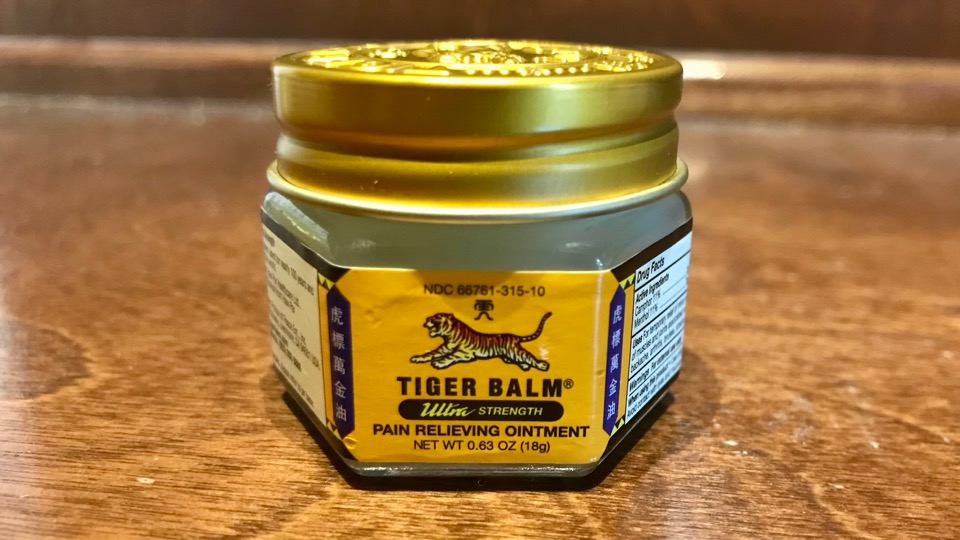
Source: philjonestriathlon.com
While anecdotal evidence for peppermint’s headache-relieving properties has existed for centuries, scientific research is increasingly validating these traditional uses. Several studies have explored the effectiveness of peppermint oil, either alone or in combination with other agents, in alleviating headache pain. However, the results are not always consistent, highlighting the need for more robust and standardized research.The existing research primarily focuses on the effects of peppermint oil on tension headaches and, to a lesser extent, migraines.
The mechanisms through which peppermint oil might work are thought to involve its menthol content, which has analgesic (pain-relieving) and anti-inflammatory properties. Menthol’s cooling sensation may also distract from pain perception.
Studies on Peppermint Oil and Headache Relief
A number of studies have investigated the efficacy of peppermint oil for headache relief. These studies have employed various methodologies, including randomized controlled trials, and have yielded mixed results. Some studies show statistically significant reductions in headache pain intensity and duration following the application of peppermint oil, while others find no significant difference compared to placebo. The variability in results may be attributed to differences in study design, participant populations, the concentration and application method of peppermint oil, and the type of headache being treated.
Peppermint’s soothing aroma and cooling effect can be a lifesaver for tension headaches; I swear by it! It got me thinking about preventative health, though, and I stumbled upon this fascinating article about how an eye test might reveal dementia risk in older adults: can eye test detect dementia risk in older adults. It’s amazing how interconnected our health is! So, while I’m using peppermint oil for my headache, I’m also scheduling my eye exam – preventative care is key, right?
Inconsistencies and Limitations of Existing Research
One major limitation of many studies is the relatively small sample size of participants. Larger, more rigorously designed trials are needed to confirm the findings of smaller studies and to establish the true efficacy of peppermint oil for headache relief. Furthermore, many studies lack long-term follow-up data, preventing researchers from assessing the sustained effects of peppermint oil treatment.
Standardization of peppermint oil concentration and application methods is also crucial for ensuring consistency across studies. The lack of a universally accepted definition and diagnostic criteria for different headache types also complicates the interpretation of research findings.
Peppermint Oil’s Promise for Specific Headache Types
Several studies suggest that peppermint oil may be particularly beneficial for tension headaches. The analgesic and anti-inflammatory properties of menthol, the primary active component of peppermint oil, may effectively target the underlying mechanisms of tension headaches, which are often characterized by muscle tension and inflammation in the head and neck. While some preliminary research suggests potential benefits for migraines, more research is needed to confirm this finding.
The efficacy of peppermint oil for other headache types, such as cluster headaches or sinus headaches, remains largely unexplored.
Methods of Using Peppermint for Headache Relief

Source: brendabeautysupply.com
Peppermint oil’s analgesic and anti-inflammatory properties make it a popular natural remedy for headaches. However, it’s crucial to understand the various methods of application and their associated benefits and drawbacks before incorporating peppermint oil into your headache management routine. Different methods offer varying levels of effectiveness and convenience, and understanding these nuances is key to safe and effective use.
Topical Application of Peppermint Oil
Topical application is a common and relatively straightforward method for using peppermint oil to relieve headaches. This involves directly applying diluted peppermint oil to the temples, forehead, and neck. The coolness and menthol sensation provide immediate relief.
Recommended Dosage and Application Techniques: Always dilute peppermint oil before topical application. A general guideline is to mix 1-3 drops of peppermint oil with 1 teaspoon of a carrier oil like coconut oil, jojoba oil, or almond oil. Gently massage the diluted oil onto the affected areas, avoiding contact with eyes and mucous membranes. Reapply as needed, but avoid over-application, which can cause skin irritation.
Aromatherapy with Peppermint Oil, Benefits of peppermint for headache
Inhaling peppermint oil’s aroma can also offer headache relief. This method leverages the oil’s ability to stimulate olfactory receptors and potentially influence neurotransmitters associated with pain perception.
Recommended Dosage and Application Techniques: Add 2-3 drops of peppermint oil to a diffuser or bowl of hot water. Inhale the vapors deeply but avoid prolonged exposure, as this can be irritating to the respiratory system. Alternatively, you can apply a few drops of peppermint oil to a tissue or cotton ball and inhale directly, but be cautious not to get it in your eyes.
Ingestion of Peppermint Oil (Capsules or Teas)
While less common for immediate headache relief, some individuals ingest peppermint oil in capsule form or consume peppermint tea. This method relies on the oil’s systemic effects to potentially reduce headache symptoms. However, it’s crucial to note that ingesting undiluted peppermint oil can be harmful.
Recommended Dosage and Application Techniques: Always follow the instructions on commercially available peppermint oil capsules. For peppermint tea, steep 1-2 teaspoons of dried peppermint leaves in hot water for 5-10 minutes. Drink the tea slowly. Consult a healthcare professional before ingesting peppermint oil, especially if you have any underlying health conditions.
Comparison of Methods
| Method | Effectiveness | Ease of Use | Potential Side Effects |
|---|---|---|---|
| Topical Application | Moderate to High (immediate relief) | High | Skin irritation (with undiluted oil), allergic reactions |
| Aromatherapy | Moderate | High | Respiratory irritation (with prolonged exposure), allergic reactions |
| Ingestion (Capsules/Tea) | Low to Moderate (delayed relief) | High (for tea; capsules require less effort) | Gastrointestinal upset, heartburn, allergic reactions, drug interactions (with certain medications) |
Potential Side Effects and Precautions
While peppermint oil is generally considered safe for topical use, it’s crucial to be aware of potential side effects and take necessary precautions to minimize risks. Some individuals may experience adverse reactions, even with seemingly mild applications. Understanding these possibilities allows for informed and safe use.Although rare, some people experience skin irritation, such as redness, itching, or burning, after applying peppermint oil topically.
This is often due to the menthol content, which can be a potent irritant for sensitive skin. The severity of the reaction can vary depending on the concentration of the oil and individual skin sensitivity. More serious allergic reactions, while uncommon, are possible and can manifest as hives, swelling, or difficulty breathing. These require immediate medical attention.
Skin Irritation and Allergic Reactions
Peppermint oil’s menthol content is responsible for its cooling sensation, but this same component can trigger skin irritation in susceptible individuals. Applying a small amount of diluted peppermint oil to a discreet area of skin first, like the inner forearm, is a crucial preventative measure. Wait 24 hours to observe any reaction before applying it to the forehead or temples for headache relief.
If redness, itching, or burning develops, discontinue use immediately and wash the area thoroughly with mild soap and water. For individuals with known allergies to mint or related plants (like spearmint or basil), the risk of an allergic reaction is higher and topical use should be avoided completely. Symptoms of a more serious allergic reaction, including swelling, difficulty breathing, or hives, necessitate immediate medical attention.
Gastrointestinal Issues and Interactions with Medications
Ingesting peppermint oil, even in small quantities, can lead to gastrointestinal upset in some individuals. This can manifest as heartburn, nausea, or diarrhea. Therefore, topical application is always recommended for headache relief, avoiding any potential oral ingestion. Moreover, peppermint oil can interact with certain medications. For example, it may increase the risk of bleeding when taken with blood thinners.
Consult with a healthcare professional before using peppermint oil if you are taking any medication, particularly those affecting the digestive system or blood clotting. This precaution ensures safe usage and avoids potential adverse drug interactions.
Precautions for Pregnant and Breastfeeding Women, and Children
Pregnant and breastfeeding women should exercise caution and consult their doctor before using peppermint oil. The safety of topical peppermint oil during pregnancy and breastfeeding hasn’t been extensively studied, and there is a potential for absorption through the skin. Similarly, children’s skin is more sensitive, increasing the risk of irritation. Diluting the oil significantly or avoiding its use altogether in young children is advisable.
A doctor or pediatrician should always be consulted before using peppermint oil on children or individuals with pre-existing health conditions. Their professional guidance ensures the safe and responsible application of this essential oil.
Comparison with Other Headache Remedies
Peppermint oil, while a promising natural remedy for headaches, isn’t the only option available. Understanding how it stacks up against other common treatments, both conventional and alternative, is crucial for making informed choices about headache management. This comparison will explore the effectiveness and side effects of peppermint oil relative to over-the-counter pain relievers and other essential oils, and also delve into the potential synergistic benefits of combining peppermint oil with complementary therapies.Let’s compare peppermint oil’s effectiveness and side effects to other common headache remedies.
While it offers a gentler approach with fewer potential systemic side effects, its speed of action and overall effectiveness might differ compared to pharmaceuticals. Furthermore, the specific type of headache can also influence the efficacy of various treatments. For instance, peppermint oil may be more effective for tension headaches than migraines.
Peppermint Oil Compared to Ibuprofen and Aspirin
The following table compares peppermint oil to ibuprofen and aspirin, considering speed of onset, duration of effect, and potential side effects. It’s important to remember that individual responses can vary significantly. This comparison aims to provide a general overview, not specific medical advice.
| Characteristic | Peppermint Oil | Ibuprofen | Aspirin |
|---|---|---|---|
| Speed of Onset | Generally slower; effects may be felt within 30-60 minutes, but this can vary greatly depending on application method and individual response. Topical application may be faster than ingestion. | Relatively fast; noticeable pain relief often within 30-60 minutes. | Relatively fast; pain relief typically begins within 30 minutes. |
| Duration of Effect | Variable, often lasting several hours but potentially shorter than ibuprofen or aspirin. Re-application may be necessary. | Typically lasts 4-6 hours. | Typically lasts 4-8 hours. |
| Potential Side Effects | Generally mild, including skin irritation (topical application), allergic reactions (rare), and potential interactions with certain medications. Ingestion of large quantities can cause digestive upset. | Gastrointestinal issues (e.g., nausea, heartburn, stomach pain), increased risk of bleeding, kidney problems (in rare cases). | Gastrointestinal issues (e.g., nausea, heartburn, stomach upset), increased risk of bleeding, allergic reactions (rare), potential for Reye’s syndrome in children and adolescents. |
Combining Peppermint Oil with Other Complementary Therapies
Peppermint oil can be effectively combined with other complementary therapies for enhanced headache management. For example, incorporating aromatherapy with peppermint oil alongside relaxation techniques like yoga or meditation can create a holistic approach. The calming effects of these practices may enhance the pain-relieving properties of peppermint oil. Furthermore, combining peppermint oil with other essential oils known for their analgesic properties, such as lavender or chamomile, may provide synergistic benefits and a more comprehensive approach to pain relief.
Aromatherapy blends should be carefully researched and formulated to avoid potential interactions or adverse effects. Always consult a healthcare professional before combining multiple therapies, especially if you have pre-existing health conditions or are taking other medications.
Illustrative Examples of Peppermint’s Use
Let’s delve into real-life scenarios showcasing how peppermint oil can be effectively used to alleviate headache pain. These examples aren’t meant to replace medical advice; always consult a healthcare professional for persistent or severe headaches.Peppermint oil’s versatility allows for different application methods depending on the type and severity of the headache. Below, we explore two distinct scenarios, one focusing on tension headaches and the other on migraines.
Tension Headache Relief with Peppermint Oil Topical Application
Sarah, a 32-year-old graphic designer, often experiences tension headaches due to prolonged periods of screen time. One afternoon, a throbbing pain began behind her eyes, accompanied by tightness in her neck and shoulders. Remembering the benefits of peppermint oil, she carefully applied 1-2 drops of 100% pure peppermint oil, diluted with a carrier oil like jojoba (a ratio of 1:4 peppermint to jojoba is recommended), to her temples, forehead, and the back of her neck.
She gently massaged the oil into her skin, avoiding contact with her eyes. Within 15-20 minutes, Sarah reported a noticeable reduction in the intensity of her headache pain and a feeling of relaxation. The tightness in her neck and shoulders also eased significantly. The relief lasted for several hours, allowing her to resume her work with less discomfort.
It’s important to note that the effectiveness can vary from person to person.
Migraine Relief with Peppermint Oil Aromatherapy
Mark, a 45-year-old software engineer, suffers from recurring migraines. During a particularly intense episode, he decided to try aromatherapy with peppermint oil. He created a calming environment by dimming the lights, turning off electronic devices, and lying down in a quiet room. He added 3-5 drops of pure peppermint essential oil to a diffuser filled with water.
The subtle, cool scent of peppermint filled the room. While inhaling the diffused oil, Mark also placed a cool, damp cloth on his forehead. The combination of the aromatic peppermint and the cool compress helped to alleviate the throbbing pain and nausea associated with his migraine. He reported a significant decrease in the intensity of the pain within 30 minutes, allowing him to drift off into a restful sleep.
The aromatherapy session, combined with rest, significantly shortened the duration and severity of his migraine episode. Again, individual responses to aromatherapy can differ.
End of Discussion
So, there you have it – a comprehensive look at the benefits of peppermint for headache relief! While peppermint oil isn’t a miracle cure, its readily available, relatively safe, and offers a refreshing approach to managing headache pain. Whether you’re a fan of aromatherapy, topical applications, or incorporating it into your daily routine, exploring the potential of peppermint for headache relief could be a game-changer.
Remember to always consult with a healthcare professional before using essential oils, especially if you have pre-existing conditions or are taking other medications. Now, go forth and experience the soothing power of peppermint!
Frequently Asked Questions
Can peppermint oil cure all types of headaches?
No, peppermint oil isn’t a cure-all. While it shows promise for tension headaches and some migraine symptoms, it may not be effective for all types of headaches. Severe or persistent headaches should always be evaluated by a doctor.
Is it safe to ingest peppermint oil for headaches?
Ingesting peppermint oil directly isn’t recommended due to potential side effects. Diluting it in a carrier oil or consuming peppermint tea is generally safer, but always start with small amounts to check for any adverse reactions.
How long does it take for peppermint oil to relieve a headache?
The onset of relief varies depending on the method of application and the individual. Some people experience relief within minutes of topical application, while others may find it takes longer.
Can I use peppermint oil during pregnancy or breastfeeding?
It’s best to avoid using peppermint oil during pregnancy and breastfeeding unless specifically advised by a healthcare professional. More research is needed to determine its safety during these periods.



